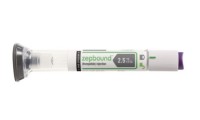-
What One Medicaid Insurer Looks for From Potential Health Tech Vendors
- Source: drugdu
- 98
- November 22, 2023
-
Almirall granted EC approval for Ebglyss in moderate-to-severe atopic dermatitis
- Source: drugdu
- 91
- November 22, 2023
-
NeoImmuneTech bags orphan drug tag for IL-7 acute radiation syndrome treatment
- Source: drugdu
- 93
- November 22, 2023
-
Senate Democrats press Sanofi and AZ for answers as ‘unprecedented’ demand spurs shortage of RSV antibody Beyfortus
- Source: drugdu
- 192
- November 22, 2023
-
FDA pushes back decision date on BMS, 2seventy bio’s Abecma in earlier line of treatment
- Source: drugdu
- 89
- November 22, 2023
-
AstraZeneca’s AKT Inhibitor Wins FDA Approval for Combo Breast Cancer Treatment
- Source: drugdu
- 124
- November 21, 2023
-
New York Proposes Regulations For Stronger Hospital Cybersecurity
- Source: drugdu
- 101
- November 21, 2023
-
Eli Lilly Plans New $2.5B Manufacturing Site in Germany for Injectable Meds
- Source: drugdu
- 102
- November 21, 2023
-
AstraZeneca’s Truqap plus Faslodex receives FDA approval for advanced breast cancer
- Source: drugdu
- 114
- November 21, 2023
-
AstraZeneca Cancer Drug Is First in Class, But FDA Nod Is Narrower Than Expected
- Source: drugdu
- 113
- November 20, 2023
your submission has already been received.
OK
Subscribe
Please enter a valid Email address!
Submit
The most relevant industry news & insight will be sent to you every two weeks.













